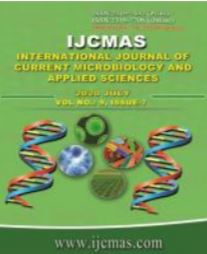


 National Academy of Agricultural Sciences (NAAS)
National Academy of Agricultural Sciences (NAAS)

|
PRINT ISSN : 2319-7692
Online ISSN : 2319-7706 Issues : 12 per year Publisher : Excellent Publishers Email : editorijcmas@gmail.com / submit@ijcmas.com Editor-in-chief: Dr.M.Prakash Index Copernicus ICV 2018: 95.39 NAAS RATING 2020: 5.38 |
Plant genetic transformation has become an important biotechnological tool for the improvement of many crops. A solid foundation for the fast development and implementation of biotechnology in agriculture has been provided by achievements in plant tissue culture. Plant tissue culture represents the most promising areas of application at present time and giving an out look into the future. The areas range from micropropagation of ornamental and forest trees, production of pharmaceutically interesting compounds, and plant breeding for improved nutritional value of staple crop plants, including trees to cryopreservation of valuable germplasm. It has broad applications in several areas but it is rather broadly used to include several variations, such as meristem culture for propagation of virus-free plants, protoplast culture and somatic cell hybridization for the introduction of new characteristics (salt tolerance, disease resistance, enhanced crop yield, etc.) into key species, anther/ pollen culture and ovule culture for producing haploid plants and embryo culture for embryo rescue in distant crosses. It also enables to select desirable traits directly from the culture setup, thereby decreasing the amount of space required for field trials. For species that have long generation time, or seeds that don’t readily germinate, rapid propagation is possible by this method. A number of medicinally important alkaloids, anticancer drugs, recombinant proteins and food additives are produced in various cultures of plant cell and tissues. Thus, tissue culture is one of the most important part of applied biotechnology.
 |
 |
 |
 |
 |